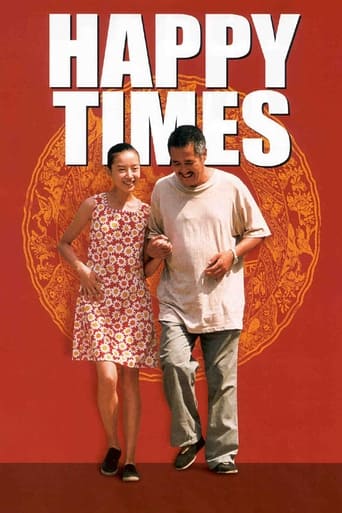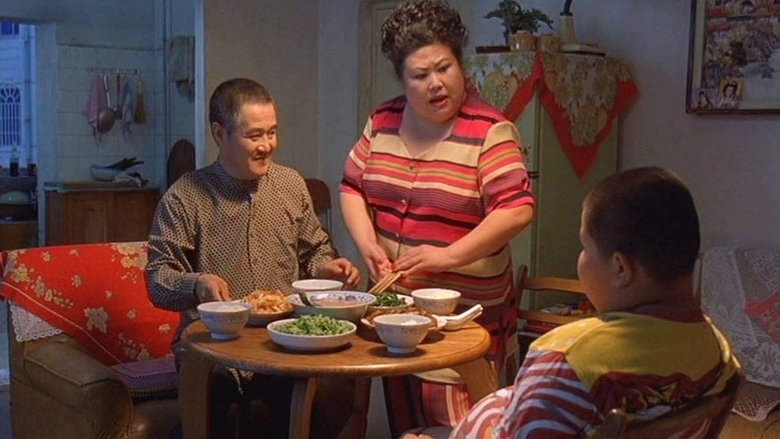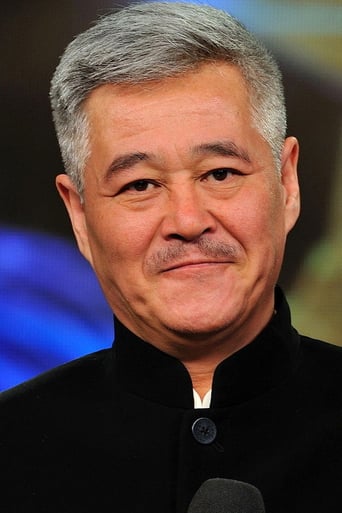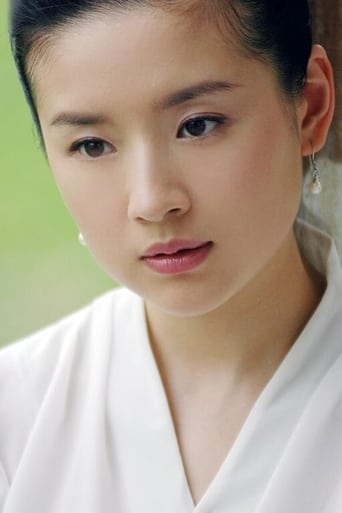

Happy Times (2000)
Zhao is an old laid-off worker who's dreaming of getting married. After trying unsuccessful proposals, he finally pairs off with a gargantuan divorcée with two children. She, however, demands a lavish wedding and that Zhao finds a job and another place to stay for her blind step-daughter. Pretending he's the General Manager of a non-existent posh hotel "Happy Times", Zhao has to find ways and means of keeping both mother and stepdaughter happy.
Watch Trailer
Cast


Reviews
Being a fan of Asian cinema, I decided to give this movie a go, so I purchased it from Amazon, and having just seen it, I can honestly say that I think something is missing from this movie. It is a great movie, but there is just something missing to make it that one notch more memorable. And I must admit that I had expected the movie to be more of a comedy than a drama about life.**Warning! The following part here contains spoiler to the ending of the movie.**Perhaps it was the semi-lousy ending to the movie. After all of Zhao's (played by Benshan Zhao) effort to give Wu Ying (played by Jie Dong) a purpose in life and make her life meaningful, he ends up in a hospital, and we don't get to know his fate? That was not very satisfactory to me. However, I will say that seeing Wu Ying on the street alone walking off at the end was just beautiful. It was nice to see that she was determined to make an effort and try on her own.The story itself was nice, Zhao is courting a woman (played by Qibin Leng) and ends up having to take care of her blind girl. But with little means and nothing real to offer, Zhao is put to the test. A test of the heart, so to speak.I found the acting in "Happy Times Hotel" to be quite good, and most memorable was Jie Dong. She portrayed the blind girl, Wu Ying, so nicely and so believable."Happy Times Hotel" is a great movie, a beautiful movie, just a shame that it started to fall apart towards the end. The movie could have been so much more if the director (Yimou Zhang) had opted to go a different direction. I felt that us viewers were left with so many unanswered questions to the story, and that was a shame, because it made the movie feel incomplete. But still, given the great story, then this movie is well worth checking out.
I have seen four films by Zhang Yimou and this one was quite impressing to me. What impressed me was that the old man kept on lying to the blind girl called Wu Ying (Jie Dong) and they still kept a great friendship even when she had finally found out that he had been lying from the very beginning.The old man was intent on marrying the blind girl's evil stepmother and didn't get a chance to in the end because she had found out about his deception. I felt sorry for the old man that time because of the way he took it and ended up getting injured by being hit by a large truck.Despite the sad ending, what I enjoyed mostly was the friendship and the fact that the old man and his friends were working hard to please her in the difficult times she had and that she was even pleased to find that fact out as she hadn't gotten much attention before.
The simple story of Happy Times overlays an interesting commentary on China's government, society, and future.The first act of film creates the characters, their relationships, and the overall situation, to set up the political allegory that plays out in the final two acts. The story unfolds that retired/laid-off Old Zhao must take care of the young blind girl, Wu Ying. Through a series of lies, Zhao has put himself in a situation where, although he is retired and poor, Wu Ying believes he owns a successful hotel. He offers to give her a job in the hotel's massage room. (This is not a front for prostitution. In China, "blind man massage" is available in most cities.)He uses the factory where he worked - which is shut down but not yet abandoned - and the help of his former workmates, to create a fake massage room and fake customers. Zhao also provides the money to pay Ying for massages, until the crew hits upon the idea of using fake money.In the old China, the state guaranteed jobs for everyone. The patriarchal and authoritarian government wanted to show off their glorious communist system, and how well it worked (compared to the decadent capitalists, with their unemployment problems). The government could always print more money, to pay these workers.The allegory is clear: Zhao represents the "state" - and its well-intentioned "make work" projects. The pride of Zhao (and his chances with his fiancee) is at stake, and he struggles to maintain the charade. As well, he finds that he cares for and is concerned about his charge, Ying.In the end, two things happen independently: Zhao finds that he cannot sustain the masquerade - he is running out of money and resources (and gets into a situation where it is impossible for him to continue, and, indeed, might put Ying in desperate jeopardy); and Ying, who cottoned on to the charade long ago, decides to take responsibility for herself, and seek her own fortune.In the same way, China's government realized it could not continue along its Maoist path, and its citizens (or at least some of them) were eager to be responsible for themselves, rather than relying on their government. A new path for China's people has opened, with greater responsibility and greater opportunity.The film's ending brings mixed emotions: we are concerned for Ying, who must begin coping with the world with no help (at her own choice, although circumstances would force this choice, anyhow); at the same time, we are optimistic for her future possibilities; and we are sad that the relationship of Zhao and Ying has ended.It is a tribute to director Zhang Yimou, Zhao Benshao (Zhao), and Dong Jie (Wu Ying) that the story and characters are touching, regardless of the underlying allegory. The movie plays well as the delicate and simple story of two people brought together by funny circumstances and human nature.
I am not too impressed with Zhang Yimou's sentimentality in his films with a contemporary milieu which I've been watching lately- but I prefer these to a couple of ornate reworkings he made (two or three in a row, if I am not mistaken) about Chinese woman's social conditions in the past, as a reflection on today's improvement or lack of it. "Red Sorghum" is still a favorite of mine, but I had to wait for "To Live" to see a different angle of his moviemaking. Though livelier in spirit than those period dramas, this one is based on a literary source and it shows, the more so if compared to the similar but free story of the young teacher in "Not One Less". Zhang concentrates on an old man wanting a wife, but his better characters are still the women: the blind girl with the open resolution of her character- is more complex than the old man and one wonders what she will do next; while her stereotypical stepmother and the only female retired friend of the old man are quite attractive and would also make good stories. A fine movie just the same.




